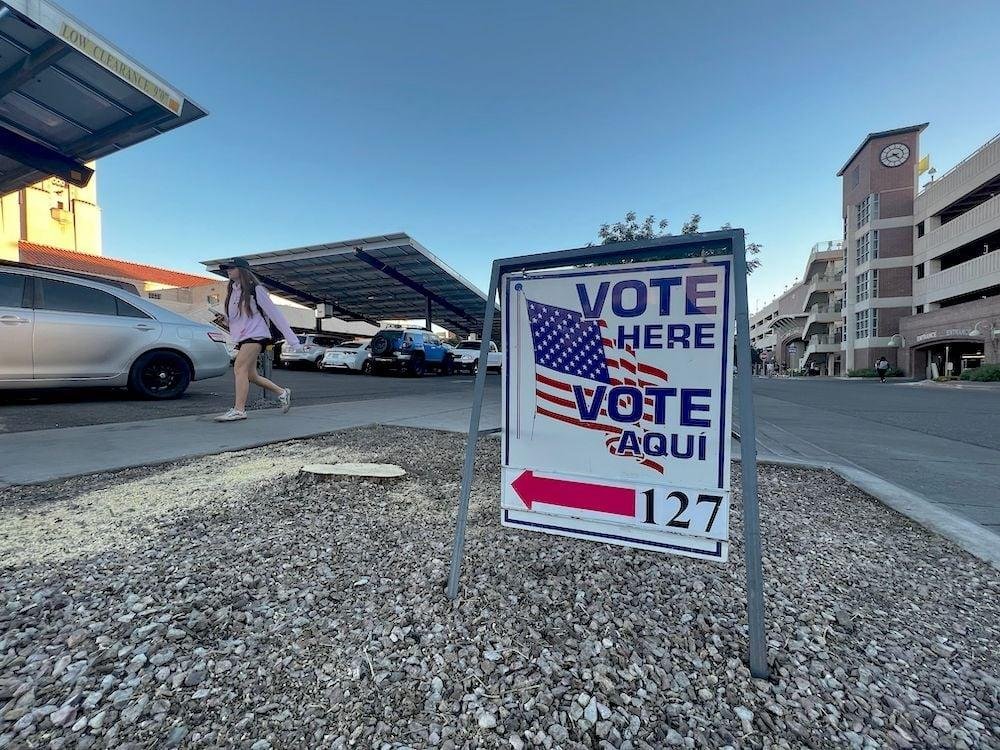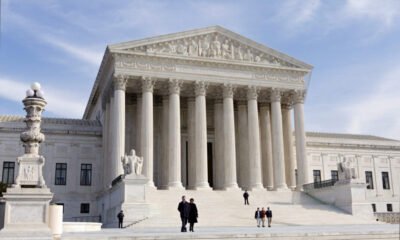arizona
Arizona’s Voting Future at Stake: Republicans Rally for Stricter Laws in Supreme Court Showdown

The Republican National Committee (RNC) has filed a request with the Supreme Court to enforce Arizona’s proof-of-citizenship laws for the upcoming presidential election in November. This move comes as part of a broader push by the RNC and Republican lawmakers to ensure that voter registration forms lacking citizenship documentation are rejected.
Republican leaders argue that a lower court ruling had compelled Arizona to include individuals on its voter rolls who did not meet the necessary state requirements regarding identity and citizenship verification. In their court brief, the RNC emphasized that ensuring the integrity of election laws is crucial for maintaining the rights of its members as voters.
The request also arises amidst unverified claims of voter fraud linked to noncitizen voting. While the U.S. House of Representatives has attempted to pass a proof-of-citizenship law for federal elections, the bill faces strong opposition in the Democratic-controlled Senate. Nonetheless, noncitizen voting is already prohibited under federal law.
Arizona’s law mandates that even those who are currently registered must present documentation—such as a birth certificate or a passport—to maintain their voter status. County officials are also required to remove anyone from the voter rolls who cannot provide such verification.
In response to the law enacted in 2022, various voting advocacy organizations, including Mi Familia Vota and the Biden administration, have initiated lawsuits against Arizona. However, there has been no urgency for a decision, largely due to the state’s secretary of state declining to enforce these restrictions.
Advocacy groups contend that the proof-of-citizenship requirement imposes significant barriers to voting. A survey estimates that over 21 million American citizens lack the necessary documents to comply with such laws.
Opponents of the proof-of-citizenship laws assert that they violate the National Voter Registration Act. The court previously ruled against similar requirements for federal election registrations in 2013, siding with advocates who believe that these laws create unnecessary obstacles for eligible voters.
The federal courts have been involved in reviewing Arizona’s application of its law to state-form applicants, with judges weighing the state’s interest in election integrity against federal regulations. A U.S. District Judge previously upheld most of the law as constitutional, but excluded the birthplace requirement for registration.
Conflicting decisions from appellate courts have left the enforcement of these laws in limbo. One panel briefly reinstated the requirements, while another panel subsequently put the provisions on hold until ongoing legal challenges are resolved. This latter panel referenced the principle established in Purcell v. Gonzalez, which advises against last-minute changes to election procedures.
Nevertheless, the RNC argues that Purcell actually supports the enforcement of Arizona’s laws. Their brief claims that the district court’s hold on the law undermines the authority of the Arizona Legislature to define voter qualifications and regulate election participation.
The application for Supreme Court intervention was directed to Justice Elena Kagan, who oversees emergency appeals from the Ninth Circuit. Advocacy groups were required to respond by August 16, with the RNC requesting a swift ruling by August 22 to allow counties adequate time to prepare ballots.


















